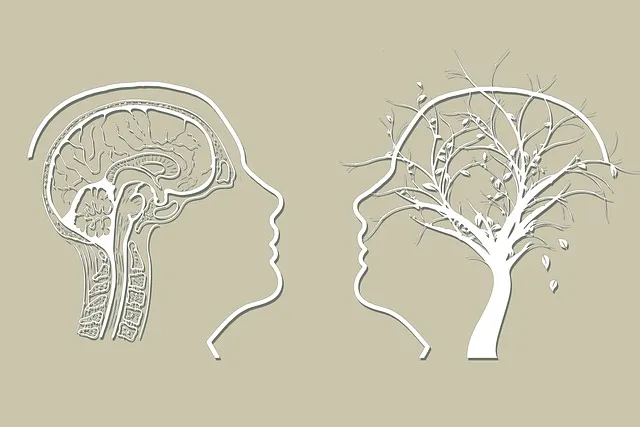Mindfulness meditation, promoted by Kaiser Permanente mental health Northglenn, is a powerful tool for enhancing mental well-being. By focusing on the present moment and observing thoughts and emotions without judgment, individuals gain self-awareness and emotional regulation skills. Regular practice reduces stress, anxiety, and depression, alters brain structure to strengthen mood management, and promotes resilience against mental illness. Starting with simple techniques like breath focus and gradually increasing duration helps overcome challenges. Kaiser Permanente Northglenn offers accessible practices, support through podcasts, and strategies for maintaining consistency in daily meditation.
Unwind and find inner peace with mindfulness meditation, a powerful tool for enhancing mental well-being. This comprehensive guide explores the practice’s benefits, backed by scientific research, as a means to reduce stress and improve overall health. Discover practical tips from Kaiser Permanente Mental Health Northglenn to begin your journey, including strategies to overcome common challenges. Cultivate a consistent practice and unlock the transformative power of mindfulness for a calmer, more balanced life.
- Understanding Mindfulness Meditation: A Foundation for Mental Well-being
- The Benefits of Regular Practice: What Science Says
- Getting Started: Practical Tips from Kaiser Permanente Mental Health Northglenn
- Overcoming Challenges: Strategies for Sustaining Your Meditation Journey
Understanding Mindfulness Meditation: A Foundation for Mental Well-being

Mindfulness meditation is a powerful tool for cultivating mental well-being, as promoted by organizations like Kaiser Permanente mental health Northglenn. At its core, mindfulness involves paying attention to the present moment without judgment, allowing individuals to develop a deeper understanding of their thoughts and emotions. By focusing on the breath, bodily sensations, or specific objects, practitioners learn to observe rather than react to internal and external stimuli.
This practice serves as a foundation for enhancing self-awareness exercises, crisis intervention guidance, and conflict resolution techniques. Regular mindfulness meditation has been shown to reduce stress, improve focus, and foster emotional regulation skills that are essential for navigating life’s challenges. By integrating mindfulness into daily routines, individuals can cultivate a greater sense of inner peace and resilience, contributing to overall mental health and well-being.
The Benefits of Regular Practice: What Science Says

Regular mindfulness meditation practice has been shown to have numerous benefits for mental health and well-being, according to scientific research. Studies conducted by organizations like Kaiser Permanente in Northglenn have highlighted its potential in reducing stress, anxiety, and even symptoms of depression. By training the mind to stay focused on the present moment, individuals can cultivate a deeper sense of self-awareness, leading to improved emotional regulation and enhanced cognitive functions.
This ancient practice is particularly effective in building resilience against mental illness and promoting positive mental health. Research suggests that mindfulness meditation can alter brain structure and function, strengthening neural circuits involved in mood management. Moreover, it contributes to stigma reduction efforts by fostering understanding and acceptance of diverse mental experiences, creating a more supportive environment for those dealing with mental health challenges.
Getting Started: Practical Tips from Kaiser Permanente Mental Health Northglenn

Starting your mindfulness meditation journey can seem daunting, but Kaiser Permanente Mental Health Northglenn offers practical guidance to make it accessible and beneficial. Begin by carving out a quiet space, free from distractions, where you can practice without interruptions. Consistency is key; aim for a set time each day, even if it’s just 10 minutes. Start with simple techniques like focusing on your breath or scanning your body for tension, gradually increasing the duration and complexity of your practices as you become more comfortable.
Remember, mindfulness is not about achieving perfection but about cultivating present-moment awareness. Incorporate these practices into your daily routine, and you’ll soon notice improvements in your mental wellness. Kaiser Permanente’s resources emphasize that building emotional intelligence and understanding your unique needs are essential for a successful risk assessment for mental health professionals, ensuring a healthier and more balanced lifestyle.
Overcoming Challenges: Strategies for Sustaining Your Meditation Journey

Overcoming challenges is a natural part of any meditation journey, especially when aiming to integrate mindfulness into your daily routine. Many people start with high enthusiasm, but as time goes on, maintaining consistency can be difficult. The key lies in developing strategies that support and sustain your practice. Start by identifying the obstacles you face—whether it’s finding time amidst a busy schedule or staying focused during sessions. Addressing these challenges head-on is empowering; it helps build mental resilience, a skill that extends far beyond meditation.
For instance, if lack of time is an issue, consider incorporating short mindfulness exercises into your day, like mindful breathing during breaks. If distractions are a problem, try using guided meditations or apps designed to enhance focus. Additionally, joining a community, such as the Mental Wellness Podcast Series Production by Kaiser Permanente Northglenn, can offer support and accountability. Engaging with others on similar paths fosters a sense of belonging and encourages consistent practice. Remember, developing inner strength is a gradual process; be patient with yourself and embrace the journey.
Mindfulness meditation, as guided by resources like Kaiser Permanente mental health Northglenn, offers a powerful tool for enhancing mental well-being. By understanding its foundational principles, recognizing the scientifically proven benefits of regular practice, and adopting practical tips for getting started, individuals can navigate challenges to sustain a meaningful meditation journey. Embrace this path to cultivate a deeper sense of calm, focus, and overall resilience.






